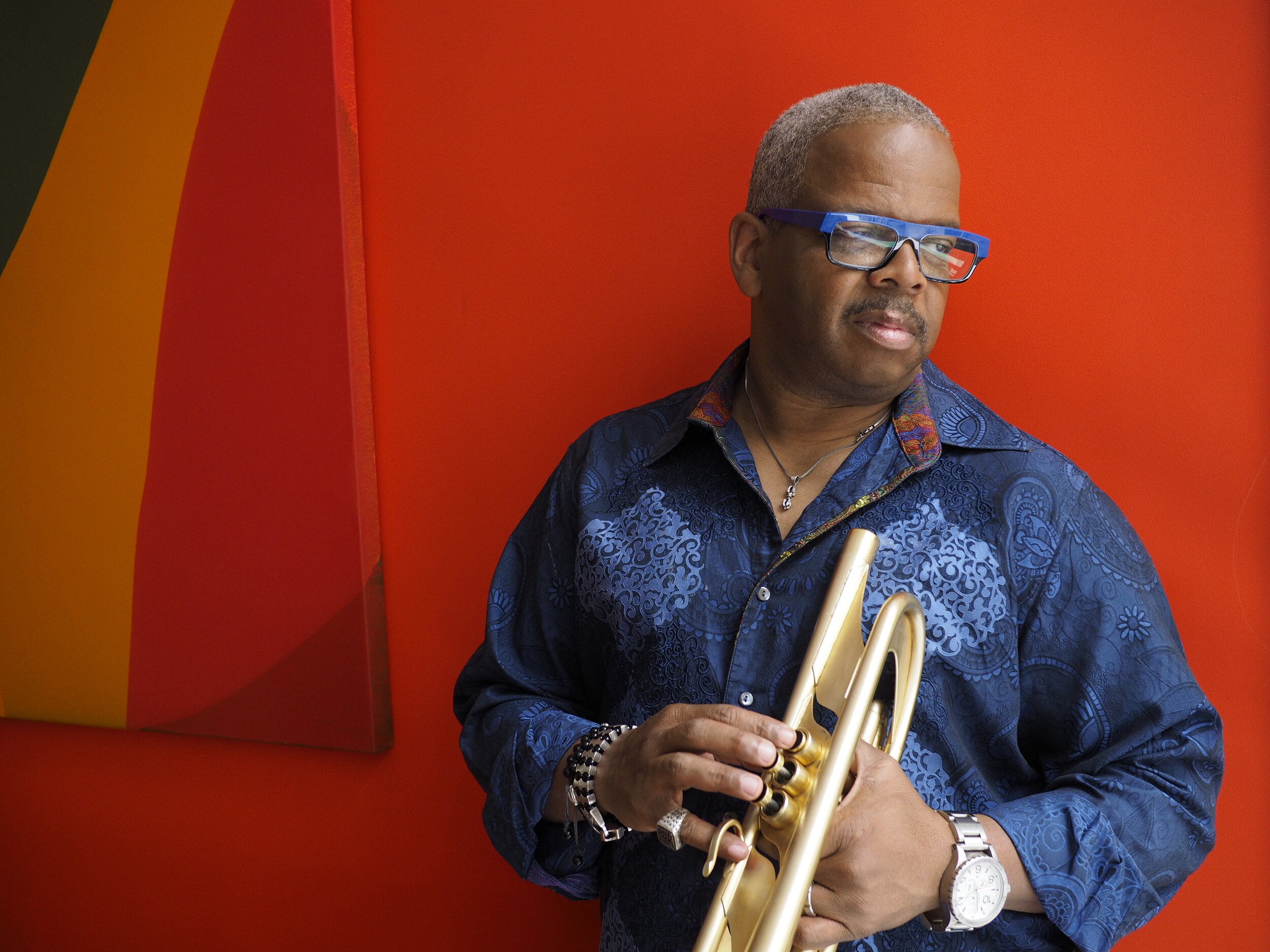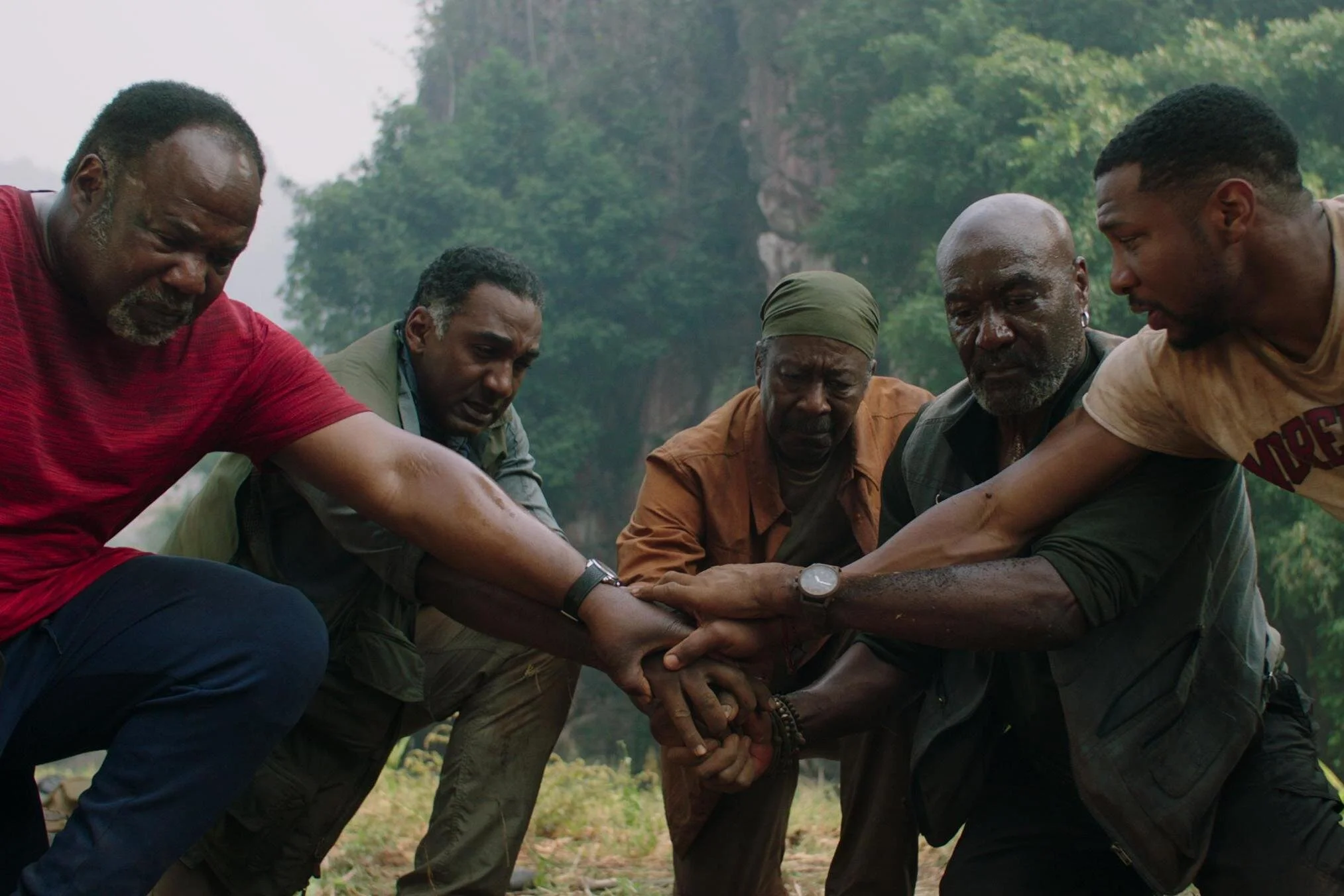From Spike Lee movies to the Met, composer Terence Blanchard makes history
Appearing as keynote speaker at VIFF AMP October 2, he writes music to help heal the pain of racial injustice.
Terence Blanchard started as a trumpet player. Today, his work spans movie soundtracks, jazz albums, and now, an epic new opera set in his home state of Louisiana.
Terence Blanchard is the keynote speaker at VIFF AMP on October 2 at 5:30 via viff.org. VIFF AMP runs October 3 and 4 online
WHEN STIR REACHES composer and jazz trumpeter Terence Blanchard at his home in the Bayou, he’s just made history.
He’s on the line to talk about his appearance as keynote speaker of the Vancouver International Film Festival’s AMP summit, VIFF’s two-day program of workshops, panel discussions, and more devoted to screen music.
But this morning, Blanchard has been named the first Black composer to have a work staged at New York City’s storied Metropolitan Opera. The 136-year-old company announced his Fire Shut Up in My Bones, based on a memoir by New York Times columnist Charles Blow, will kick off its next season in fall 2021. Conducted by the famed Yannick Nézet-Séguin, it features vast gospel choruses and unpredictable melodies rooted in jazz.
“It’s starting to hit me; friends have been calling me and my wife, but it’s still hard to grasp conceptually,” he says, speaking to Stir from his isolated hideaway on “an island nobody knows about” near New Orleans. “It’s something I never could have seen myself being a part of.”
Blanchard is probably best known for scoring Spike Lee joints, starting with the director’s 1991 film Jungle Fever. Since then, his work has spanned everything from Lee’s four-hour New Orleans hurricane documentary When the Levees Broke: A Requiem in Four Acts, right up to the Vietnam-war reckoning Da 5 Bloods, which recently came out on Netflix. In all, he has composed over 40 film scores and performed on more than 50. Finally nominated for an Oscar for his work last year, for BlacKkKlansman, he’s well acquainted with Hollywood.
Tinseltown is a long way from where he grew up, as a boy who loved playing the trumpet in Louisiana. He would go on to perform with the Lionel Hampton Orchestra then Art Blakey and the Jazz Messengers.
Friends unite to return to Vietnam in Spike Lee’s Da 5 Bloods. Photo courtesy Netflix
But to talk to him today, the halls of one of the world’s major opera houses is an even bigger leap. That’s in part because he's living out a dream of his father’s, who was an amateur opera singer and loved the art form. But the scale of the work is also huge--with bigger responsibilities.
“It’s all on the music,” he says with a laugh. “With film, I’m just a cog in the wheel, but with opera I am the wheel. Nothing is left to chance.”
Blanchard, who is used to wielding full orchestras for the soundtracks in Lee’s iconic films, is overly modest about the role his epic scores play.
“Spike--he always wants to have a huge sound,” says the composer, who met Lee while playing on movies like Mo’ Better Blues. “He told me that when we first started.”
One of the most daunting and indelible scenes he’s had to score was the opening for Malcolm X. In the riveting montage, the great orator’s angry “I charge the white man…” speech is set against the image of an American flag. The sound of a driving drum beat and a rising blues trumpet gives way to images of Rodney King’s beating, intercut with flames engulfing the stars and stripes.
“You have to be honest about reaching through the situation,” Blanchard begins. “That came from an experience I had as a kid. I used to go to a summer jazz camp, and we were doing a summer concert in the park. On a break someone put on one of Malcolm X’s speeches, and he's saying, ‘The revolution’s gonna be bloody’. See, I was 15 or 16 and I was a little church boy. I knew Martin Luther King, but here's this person talking about the ‘blue-eyed devil’. So that's literally that bass drum: that's my heartbeat.”
Battle scenes, noir, and jazz
Blanchard, who waits to see the edited footage before composing, has a way of heightening such moments. Think of the sweeping score with the syncopated military drums that drives the tension of Da 5 Bloods’ battle-scene flashbacks,
“With the helicopter, the shots are just striking and gorgeous, and I just tried to make sure the music was elevating that. It was all about celebrating the heroism of people putting their lives on the line. Those guys are risking their lives. You have to pay homage to that,” he says.
Blanchard has a knack for creating atmosphere—just look at the memorable, retro-jazzy rhythms that punctuate his soundtrack for HBO’s noir series Perry Mason.
His unique ability to riff on images and stories may come from his roots in jazz, he says.
“Jazz I think gave me the unique ability to think on my feet,” he says. “Jazz has allowed me to see multiple approaches to one thing—and also to make changes quickly.”
Those skills have put him in demand—keeping him too busy to think about how much he misses performing jazz, he allows. Amid pandemic isolation, he's recently crafted music for Regina King's feature One Night in Miami (a fictionalized account of a 1964 meeting between Malcolm X, Muhammad Ali, Sam Cooke, and Jim Brown, and a hit at TIFF) and Halle Berry's directorial debut Bruised (an MMA sports film) on top of getting his opera stage-ready.
In all his work, Blanchard helps audiences process painful history—and, unfortunately, current events. Even his jazz albums plumb difficult events: 2015’s Breathless, recorded with his E-Collective, has a title that echoes the last words said by black New Yorker Eric Garner—“I can’t breathe”—while in an NYPD officer’s chokehold. Blanchard remarks about how haunting it is that the album title could just as easily refer to George Floyd, suffocated to death by police in Minnesota earlier this year.
“When was ‘Strange Fruit’ written?” he asks rhetorically about the protest song made famous by Billie Holiday, a battle cry against lynchings first penned in the mid-’30s. “And we're still dealing with these issues.”
One of Terence Blanchard’s most recent scores is for Regina King’s upcoming film One Night in Miami, about a fictionalized 1964 meeting between Malcolm X, Muhammad Ali, Sam Cooke, and Jim Brown. Photo courtesy Amazon Studios
Blanchard’s historic opera will not shy away from hard subjects either. Fire Shut Up in My Bones is based on Charles Blow’s memoir of the same name, in which the influential, Louisiana-born African-American journalist confronts poverty, racism, sexual abuse, and the legacy of slavery in the South.
Unrest and healing
Blanchard, born in 1962, grew up in that same Deep South in a time of civil unrest. Today, does the agony and discrimination he wrestles with in his work ever bring Blanchard down—especially when he sees the same themes playing out on the streets of America and the tumult of the Black Lives Matter protests?
“Music is the thing that allows people to heal,” he offers. “Hopefully music can find the rhythm to be able to look at these situations.
“Yes, it’s painful. Sometimes you're pissed, sometimes you're just hurt, sometimes you're depressed,” continues Blanchard. “When I was writing When the Levees Broke, I would go right outside and relive it. That was very heavy. But while I'm writing this music, I'm healing myself. That's one of the things that I love to do: to chip away at the darkness as human beings.”
















